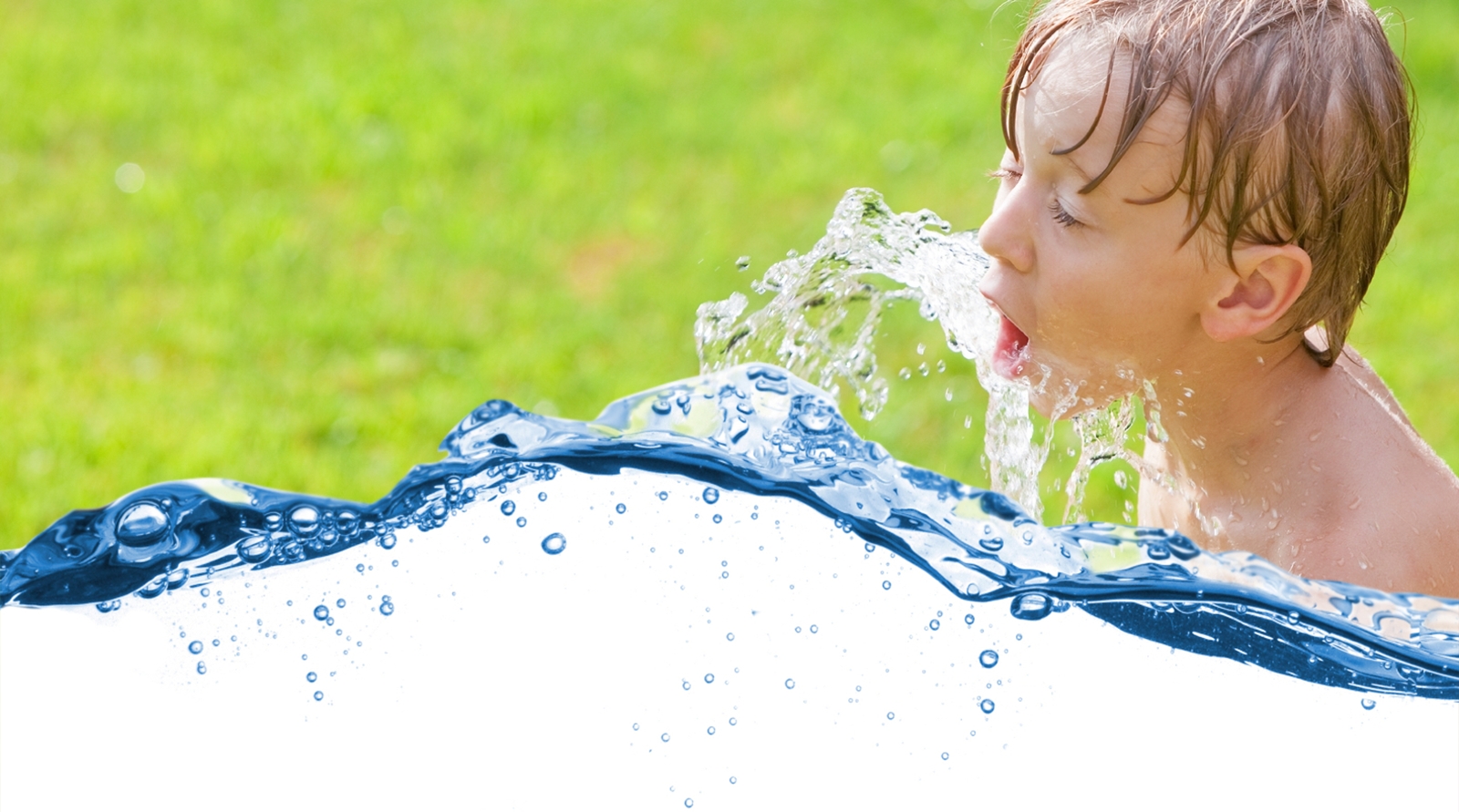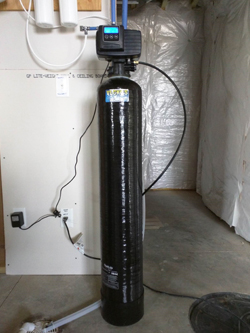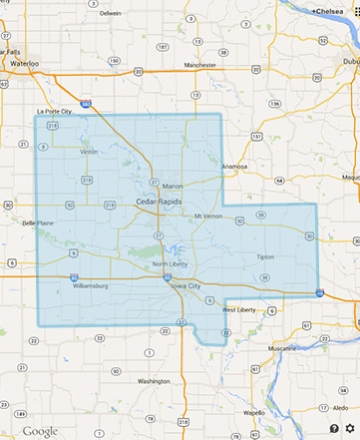

You don’t always need a brand new water softener. Sometimes, you just need answers. At Vlcko’s Soft Water, our first goal is not to replace your water softener or install a reverse osmosis filtration system. Our number one objective is to help you better understand how the water in your home can improve the quality of your life.
When it comes to improving the quality of the water in your home, there are no bad questions. We’ve collected some we hear most often and provided answers that will help you better understand the positive role soft water can have in your life.
Is my water safe to drink?
Why are my whites so dingy when I do laundry?
Why can't I rinse all of the soap off in the shower?
Why are there spots on my drink glasses?
Why do my toilets turn orange?
Should I chlorinate my well?
Do I need a water softener?
How do I make my water taste better?
Why are there mineral deposits in my humidifier?
Why does my water smell like rotten eggs?
Why is my bathtub turning Orange?
Do I need a whole house filter?
Will soft water kill my plants?
Can I drink soft water?
Why is my hair turning Green?
Why is my hair turning Orange?
What is soft water?
What are the benefits of soft water?
Can I discharge my water softener into my septic tank?

Water supplied by a municipality is highly regulated and tested. The municipality is required to provide safe drinking water.
Why are my whites so dingy when I do laundry?
When you do laundry with hard water, its hardness scales out in your clothes, providing a surface that soap can stick to. This, in turn, ages your clothes prematurely and gives them that dingy look. Soft water allows soap to work the way it was designed, rinsing completely out of your clothes.
Why can’t I rinse all of the soap off in the shower?
When you shower in hard water, its hardness scales off, providing a surface that soap can stick to. Many mistake this for being clean, but you never completely remove soap with hard water. Since soft water doesn’t scale out, all of the soap rinses off and you’re left with a slippery feeling that’s actually the oils in your skin, not remaining soap.
Why are there spots on my drink glasses?
When hard water evaporates, it leaves behind hard-to-remove mineral deposits. While soft water can also leave deposits, these can be wiped away easily. Our water softeners keep your glasses nice and clean.
Why do my toilets turn orange?
When the hardness in your water scales out and coats toilet surfaces, iron sticks to them and turns the toilet orange. A water softener—and possibly one of our iron filters—will solve that problem.
At Vlcko’s Soft Water, we don’t recommend adding chlorine without a good reason, such as a failed bacteria test or maintenance issue caused by high levels of “iron bacteria.” If you’ve ever had a maintenance issue like this, you know how much it can ultimately cost. We can test your water for chloroform or E. coli bacteria. Chlorine does make sense in certain applications. For example, chlorine is an effective oxidizer that can remove the sulfur smell from water. Even here, though, one of our iron filters is often a better choice.
Do I need a water softener?
While not all water has the same hardness and the ill effects of hard water take longer to show up in some places, all of the water in our far-reaching service area is considered hard. Whenever we’ve tested water considered soft, it got that way because of a water softener.
How do I make my water taste better?
Sometimes, using a commercially available filter to remove the chlorine will work. If you don’t have chlorine, however, these filters do little to improve water quality. To get better drinking water, consider a cost-effective reverse osmosis drinking water system. Reverse osmosis removes 90 percent or more of what’s keeping your water from tasting great—and it’s the same process used to make most bottled water.
Why are there mineral deposits in my humidifier?
When water evaporates, it leaves behind minerals. While hard water deposits are impossible to clean up, any deposits from soft water can be easily wiped off.
Why does my water smell like rotten eggs?
Hydrogen sulfide gas in water makes it smell like sulfur or rotten eggs. Since this gas is present in nature, it can be in your well. Letting Vlcko’s Soft Water install an iron filter will get rid of it.
Another common cause: a deteriorating anode rod in your water heater. Removing this rod or replacing it with an aluminum alternative could make the odor go away. If it doesn’t, we can install an iron filter.
Why is my bathtub turning orange?
When the hardness in water scales out on surfaces, it creates a place that iron can stick to. If your water softener is working properly, your water heater might have an iron accumulation that is causing the problem. First make sure your softener is operating properly then drain the heater to remove all the iron.
Do I need a whole house filter?
It’s a subjective decision since people differ widely on what’s acceptable to have in their water. For example, all water has some color and a whole house filter can remove most of it. Vlcko’s doesn’t install many whole house filters because they’re hard to change and, as a result, usually don’t get changed until water starts to smell or the homeowner runs out of water altogether. If a whole house filter only needs changing every six months or longer, chances are you’d never notice if it wasn’t there at all. And if you find yourself needing to change it more often, an iron filter might be a better solution.
Will soft water kill my plants?
Soft water won’t kill your plants any more than hard water will. Since salt is used in the regeneration of a water softener, many people believe salt is added to the water. What actually happens is a hard ion (calcium) is replaced with a soft ion (sodium) during the softening process—and sodium is no more harmful to plants than calcium.
If your water is safe to drink before it’s softened, it’s perfectly safe to drink after. The softening process removes hard ions (calcium) and replaces them with soft ions (sodium). Since the amount of sodium in a quart of most soft water is less than you’d find in a tablespoon of ketchup, even those on restricted-sodium diets can drink soft water.
Hair typically turns blue or green when chlorine in the water reacts with chemicals in hair care products. However, low pH water could also be leaching copper from your plumbing and causing the color. A simple test can determine the copper levels in your water. If present, filter cartridges can raise the pH levels.
Why is my hair turning orange?
When the hardness in water scales out on every surface it contacts, iron has a place to attach and turn things orange. Softening the water will help get your hair clean and keep it the color you want it to be.
If your water softener is working properly and the problem persists, consider draining and flushing your water heater to remove iron that accumulates over time.
Hard water has hard ions like calcium, magnesium and iron. Soft water doesn’t. Water softeners use ion exchange resin to remove hard ions and replace them with soft ions. Depending on what gets put into the brine tank, this usually means removing calcium and replacing it with either sodium or potassium.
What are the benefits of soft water?
The hardness in water scales out onto everything. This shortens the life of faucets, toilets, appliances and clothes. It also prevents soap from working as efficiently as it should.
Soft water extends the life of these things and allows soap to work as it should. Because appliances can work more efficiently and you can use less soap, you’ll experience energy and cost savings. In other words, a happier and cleaner you.
Can I discharge my water softener into my septic system?
Vlcko’s views this as a quantity of water concern more than a quality of water issue. Since our water softeners use about as much water per regeneration as a standard load of laundry, they contribute little to the overall load on a septic system.
What our customers are saying
Great product and even better service. Since putting in a water softener my hair feels so clean! No more stains around the toilets and Vlckos' service is exceptional. They were tidy and professional...read on
-Sarah Novak, Cedar Rapids, IA
